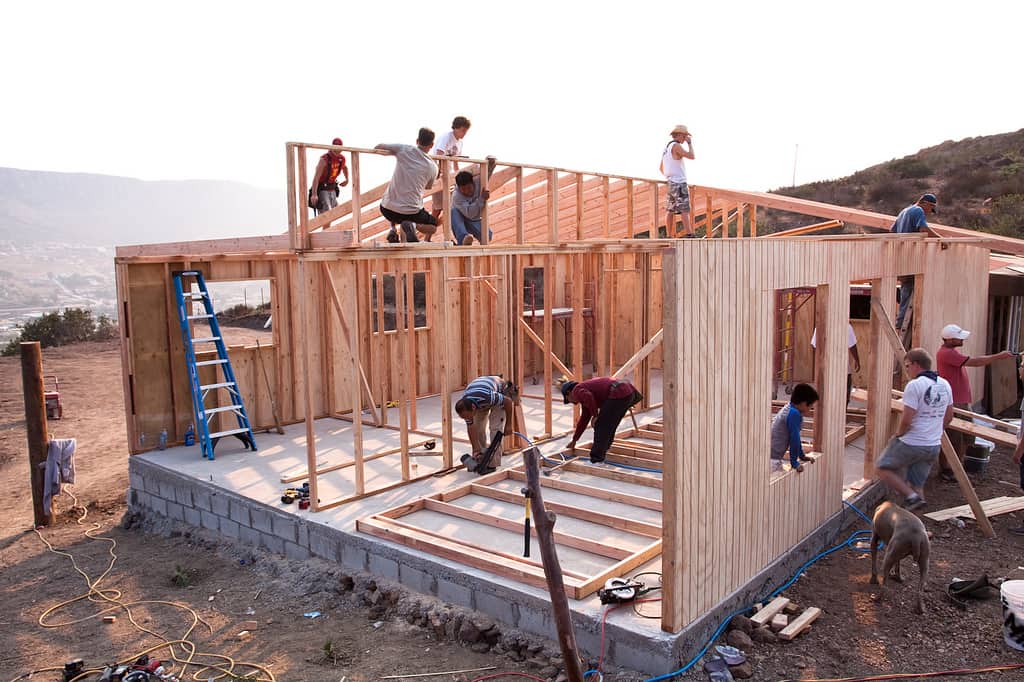
Things to consider when building a house
There are numerous factors to consider to ensure the process goes smoothly and the end result meets your needs and expectations. Here’s a comprehensive list of things to consider when building a house:
- Budget: Determine your budget and stick to it. Consider all costs including land, materials, labor, permits, and unforeseen expenses.
- Location: Choose a desirable location based on factors like proximity to work, schools, amenities, and potential resale value.
- Land: Assess the land for factors like soil quality, slope, drainage, and zoning regulations.
- Design: Decide on the architectural style, layout, and size of your house. Consider factors such as family size, lifestyle, and future needs.
- Builder/Contractor: Research and select a reputable builder or contractor with experience in the type of home you want to build.
- Permits and Regulations: Obtain all necessary permits and ensure compliance with local building codes and regulations.
- Utilities: Plan for access to utilities such as water, electricity, gas, and sewage. Determine if the land needs utility connections or if you’ll require alternative solutions like wells or septic systems.
- Energy Efficiency: Incorporate energy-efficient design elements and materials to reduce long-term utility costs and environmental impact.
- Materials: Choose high-quality, durable materials that suit your aesthetic preferences and budget. Consider factors like maintenance requirements and sustainability.
- Floor Plan: Design a functional floor plan that maximizes space and meets your lifestyle needs. Consider factors like room sizes, flow, and flexibility.
- Foundation: Select the appropriate foundation type based on soil conditions, climate, and local building codes.
- Structural Integrity: Ensure the structural integrity of the house by using proper building techniques and materials.
- Safety Features: Incorporate safety features such as smoke detectors, carbon monoxide detectors, fire extinguishers, and secure entry points.
- Accessibility: Design the house to be accessible for all occupants, including those with disabilities or mobility issues.
- HVAC System: Choose an efficient heating, ventilation, and air conditioning system that provides comfort and maintains indoor air quality.
- Plumbing and Electrical: Plan the layout of plumbing and electrical systems to meet current needs and allow for future expansions or upgrades.
- Insulation and Ventilation: Install adequate insulation and ventilation to regulate temperature, reduce energy consumption, and prevent moisture problems.
- Windows and Doors: Select energy-efficient windows and doors that provide natural light, insulation, and security.
- Interior Finishes: Choose finishes such as flooring, paint, cabinetry, and countertops that reflect your personal style and preferences.
- Landscaping: Plan for landscaping that enhances curb appeal, provides outdoor living spaces, and complements the architectural style of the house.
- Timeline: Develop a realistic timeline for the construction process, taking into account factors like weather, permits, and availability of materials and labor.
- Contingency Plan: Prepare for unexpected delays or issues by setting aside a contingency fund and having alternative plans in place.
- Communication: Maintain open communication with your builder, contractors, and suppliers throughout the construction process to address any concerns or changes promptly.
- Inspections: Schedule regular inspections to ensure that construction meets quality standards and complies with building codes.
- Final Touches: Plan for final inspections, cleaning, and any necessary touch-ups before moving in.
Building a house requires careful planning, attention to detail, and collaboration with professionals. By considering these factors, you can create a home that meets your needs, preferences, and budget while ensuring long-term comfort, safety, and satisfaction.





